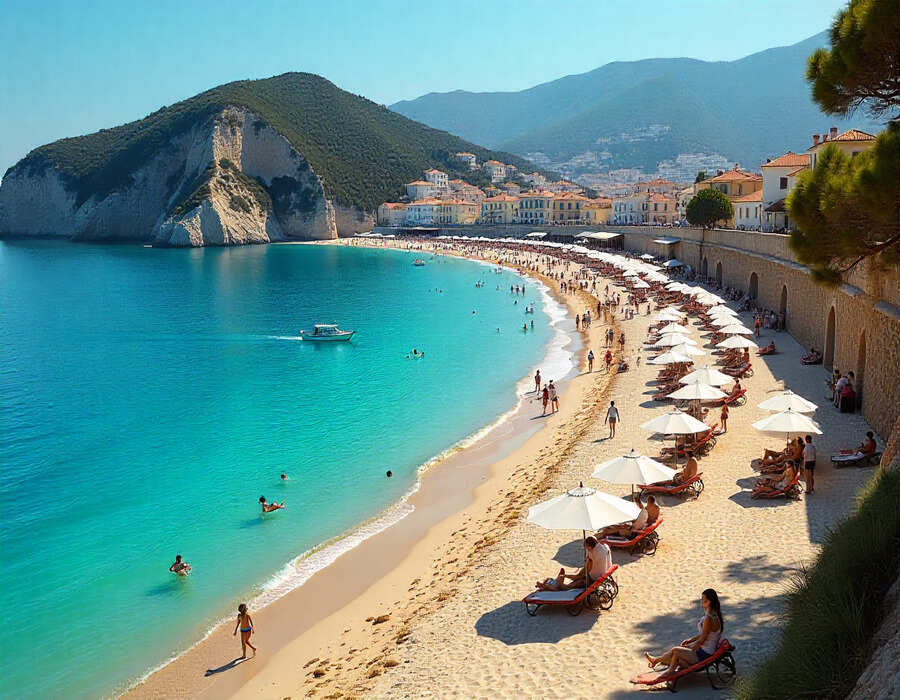Home » Spain Travel News » Spain Takes Strong Action to Transform Balearic Islands Tourism by Imposing Higher Tourist Tax to Combat Overcrowding and Promote Sustainable Travel Practices
Published on
November 8, 2025
Spain is taking decisive steps to reshape the future of tourism in the Balearic Islands by proposing a significant increase in the tourist tax. This bold move aims to address the growing concerns of overcrowding, environmental degradation, and the displacement of local residents caused by mass tourism. With the proposed hike, especially during the peak summer months, the government intends to generate much-needed revenue to fund sustainable tourism initiatives, improve local infrastructure, and better manage the effects of excessive tourism. By making these changes, Spain hopes to strike a balance between welcoming visitors and protecting the long-term viability of the islands for both locals and future tourists.
Tourists heading to Spain’s Balearic Islands could soon face higher costs as proposals to increase the region’s tourist tax move forward. These changes are aimed at boosting revenue while addressing the mounting challenges that come with the islands’ ever-growing popularity. The proposal primarily targets high-demand destinations such as Mallorca, Menorca, Ibiza, and Formentera, but it also affects smaller islands like Cabrera and more than 150 lesser-known islets scattered across the archipelago.
Currently, British visitors to the Balearics pay a variable tourist tax based on the type of accommodation they choose and the season in which they travel. For instance, during peak season, those staying in five-star hotels pay a nightly tax of €4 (£3.50) per person. Travelers opting for mid-range hotels pay €3, budget accommodations set visitors back €2, and those staying in hostels pay €1. During the off-peak months, the tax drops by 75%, offering some relief to tourists visiting during quieter times.
Spain’s appeal to British holidaymakers is undeniable, with around 18 million Britons flocking to the country annually, making it the UK’s most popular holiday destination. Of these, nearly 27% choose the Balearic Islands, which equates to a significant number of travelers potentially impacted by any changes in tax rates.
In response to ongoing concerns about the impact of mass tourism, the Workers’ Commission, one of Spain’s largest trade unions, has proposed a substantial hike in the tourist tax. The union suggests that during the busiest months of July and August, the nightly tax should increase to €15 (£13) per person. If this proposal is accepted, the tax would rise dramatically, with families seeing substantial increases in their travel costs. For example, a family of four staying at a luxury resort for two weeks would face a tax bill of €840 (£736), a significant jump from the current €224 (£196).
The proposed increase is part of the Balearic government’s plan to generate additional revenue, which would be used to manage tourism’s effects on the islands. Over the years, locals have voiced their frustrations with the influx of visitors, which has led to rising property prices, overcrowded streets, and a growing divide between residents and tourists. In some areas, residents have been pushed out by the demand for short-term rental properties, often listed on platforms like Airbnb, further exacerbating the housing crisis.
The Balearic Islands are no strangers to protests against the negative consequences of mass tourism. Many locals argue that the island’s charm and character are being eroded by overcrowding, pollution, and the increasing commercialization of once-quiet neighborhoods. There are also concerns about environmental degradation, with some residents expressing alarm over the impact of large-scale tourism on natural resources and ecosystems.
The proposed tax hike is expected to help fund initiatives aimed at tackling some of these issues. For example, the revenue could be used to support infrastructure improvements, enhance public services, and promote more sustainable tourism practices. Moreover, the increase in the tourist tax could act as a deterrent, helping to reduce the number of visitors during the high season. This may help alleviate some of the pressure on local resources and protect the islands’ long-term viability as a travel destination.
However, the proposal has been met with mixed reactions. Supporters argue that the increased tax is necessary to protect the Balearics from the adverse effects of overtourism and to ensure the region remains a desirable place for both residents and tourists. Critics, however, warn that the higher tax could deter some travelers, particularly those on a budget, from visiting the islands altogether. In a post-pandemic travel environment, where many destinations are competing for visitors, the impact of such a price increase could be felt beyond the Balearics.
As the proposal moves forward, it remains to be seen whether the Balearic government will implement the tax increase and how it will affect tourism in the region. What is certain, however, is that the future of tourism in the Balearic Islands will depend on finding a delicate balance between meeting the needs of visitors and preserving the quality of life for locals.
Spain is raising the tourist tax in the Balearic Islands to tackle overcrowding and environmental challenges, aiming to generate revenue for sustainable tourism and local improvements. This move seeks to balance tourism growth with the preservation of local communities and ecosystems.
Ultimately, the increased tax could serve as a crucial tool for the Balearic Islands, helping to mitigate the challenges of overtourism while ensuring that the region remains a viable destination for future generations. It also raises important questions about the sustainability of tourism in some of the world’s most sought-after destinations and the role that taxes and regulations can play in managing the flow of visitors. For now, the Balearic Islands remain at the forefront of the ongoing debate about how to balance the economic benefits of tourism with the need to protect local communities and the environment.
